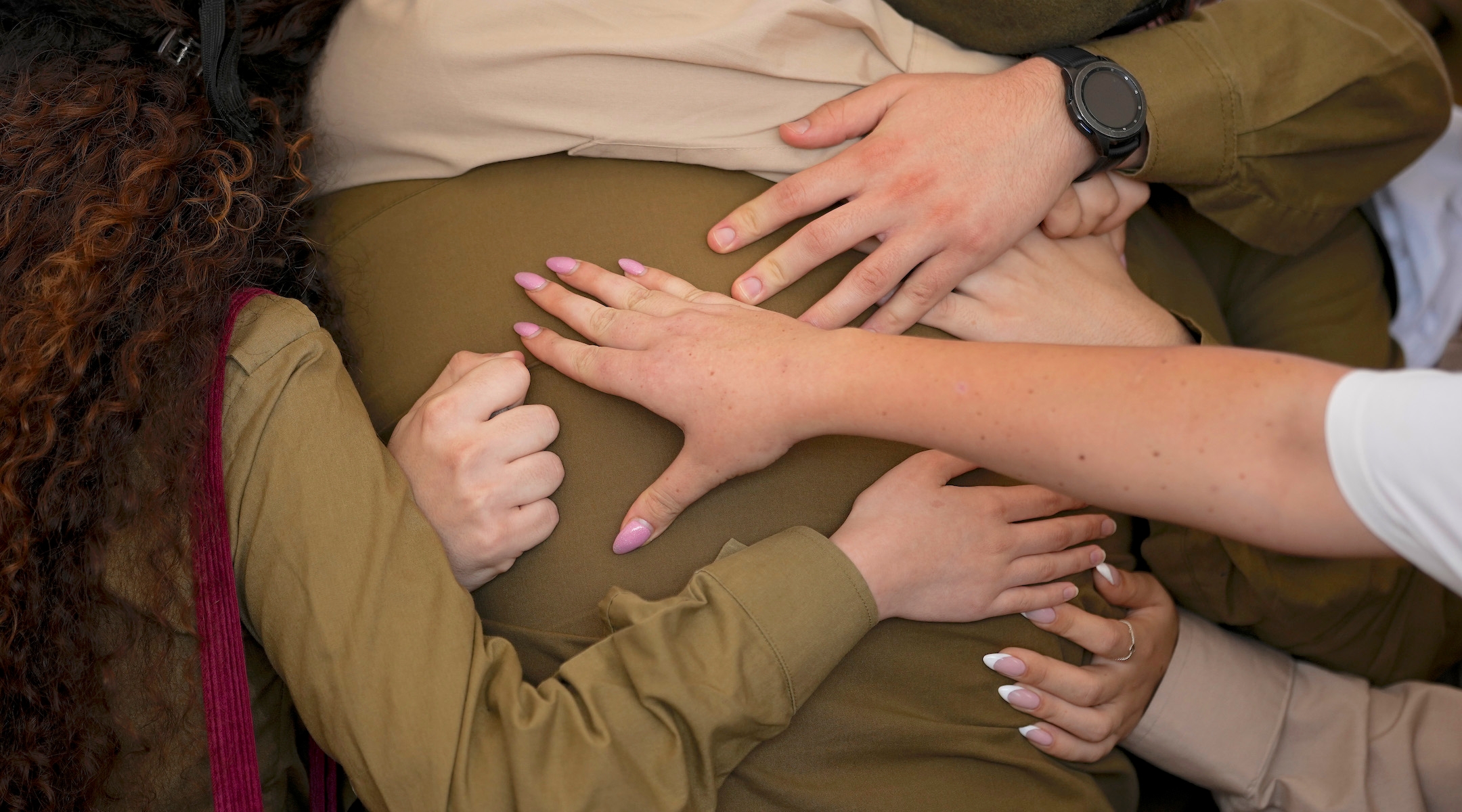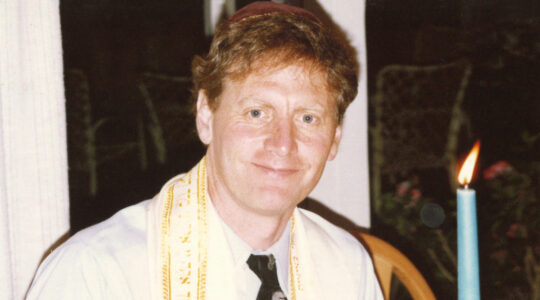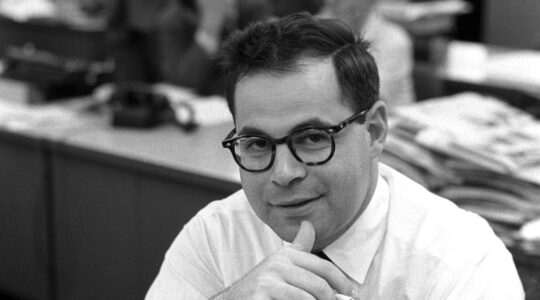This piece has been periodically updated since it was first published.
(JTA) — After the deadly attack by Hamas that claimed the lives of over 1,200 Israelis, international workers and others living in the country’s south, the Jewish world joined to share in the grief of the mourners and lament the lives cut brutally short. Below are just a fraction of the men and women who were killed on Oct. 7 — some are soldiers, most are civilians, and all helped make up the rich tapestry of the country.
Elad Katzir, 47, a kibbutznik known as a “man of the land”
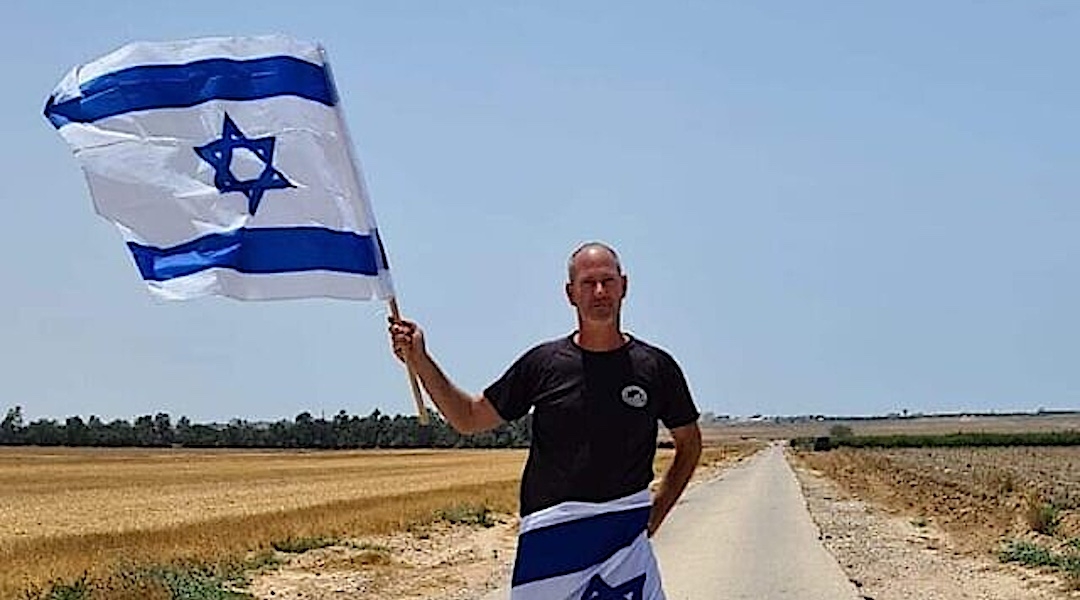
An undated photo of Elad Katzir, a farmer and activist from Kibbutz Nir Oz who was murdered in captivity by Palestinian Islamic Jihad terrorists. (Facebook via Times of Israel)
Elad Katzir, 47, who was among 253 people abducted by Hamas-led terrorists during the Oct. 7 onslaught, was “murdered in captivity by the Palestinian Islamic Jihad terror group,” the Israel Defense Forces and his family said April 6. Katzir was a farmer and social activist living on Kibbutz Nir Oz when terrorists murdered his father Rami and took Katzir and his mother, Hanna, captive. Hanna Katzir was released on Nov. 24 as part of a temporary ceasefire deal; the family held out hope for Elad’s eventual release after he was seen in propaganda videos posted by Islamic Jihad. “He was known by his friends and family as a man of the land,” the Times of Israel reported, “who during tense security times and attacks from Gaza, would insist on working the kibbutz lands closest to the border with Gaza.” IDF commando units retrieved his body and he was buried April 7 in Kibbutz Nir Oz.
Uriel Baruch, 35, a dad who loved techno music
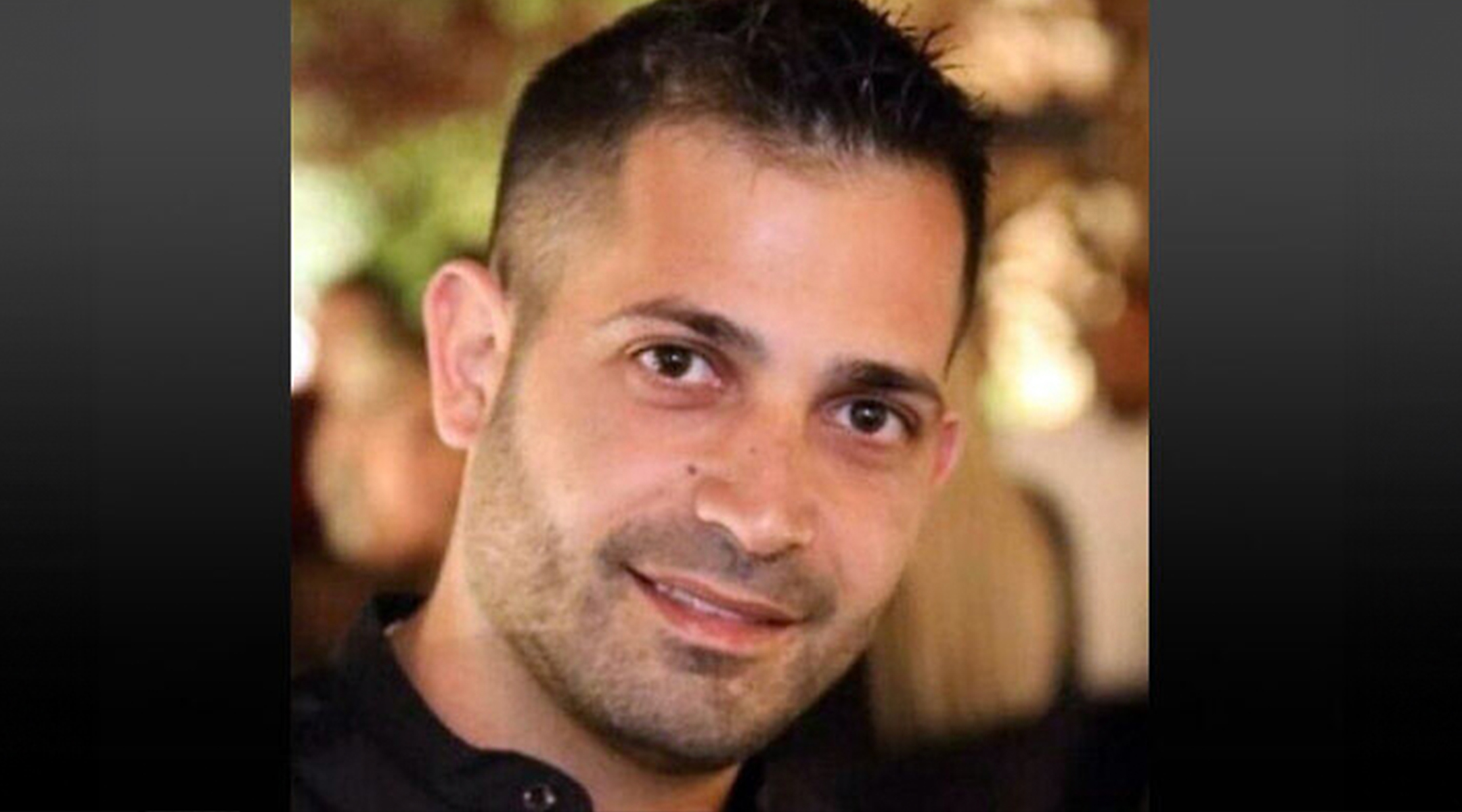
Uriel Baruch was presumed taken hostage by Hamas terrorists on October 7, 2023. His death in Hamas captivity was announced on March 26, 2024. (Courtesy via Times of Israel)
Uriel Baruch, 35, who was taken captive by Hamas at the Supernova music festival on Oct. 7, was killed in captivity, according to the Tikva Forum for the families of hostages. The military said on March 26 that his body is being held hostage in Gaza. A resident of the Giv’on settlement just outside Jerusalem, Baruch worked in construction and loved techno music. He is survived by his wife Racheli and their two sons. “Uriel was a happy person and loved by mankind, loved by everyone who was near him, we will remember his smile, the love of the person in him,” the family said in a Tikva Forum statement.
Itay Chen, 19, Israeli-American soldier and face of the missing hostages
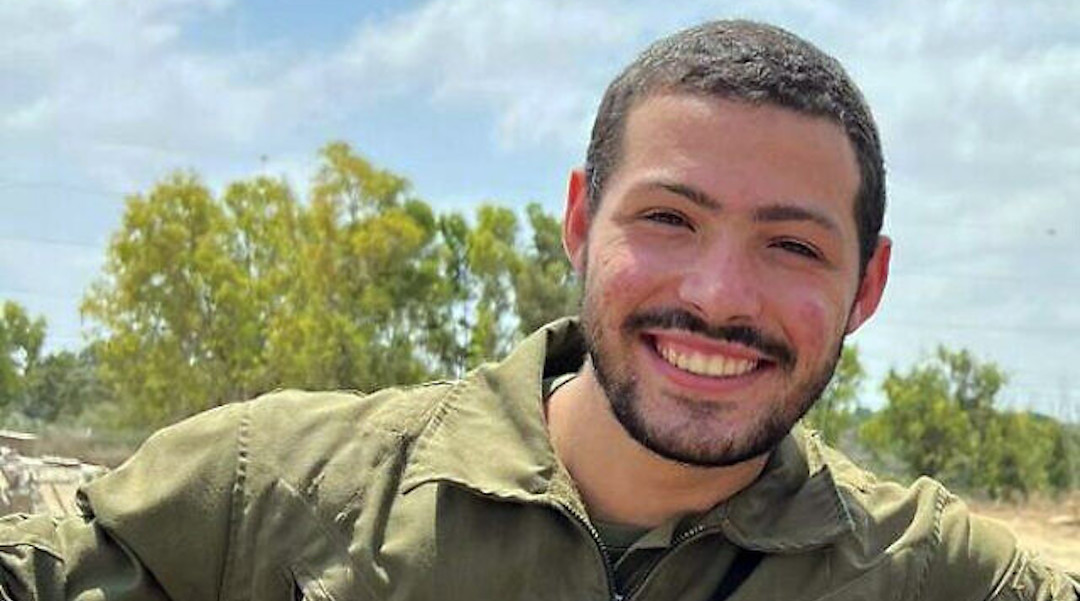
Sgt. Itay Chen, 19, from Netanya, was killed and his body abducted following a battle with terrorists during the Oct. 7 Hamas onslaught. (Courtesy, via Times of Israel)
After American-Israeli soldier Itay Chen went missing on Oct. 7, his parents emerged as two of the most visible advocates for the more than 100 people still being held hostage by Hamas. His father, native New Yorker Ruby Chen, lobbied lawmakers in Washington and New York and diplomats at the United Nations to urge pressure on Hamas; his mother Hagit was a guest of Sen. Joni Ernst (R-Iowa) at President Joe Biden’s March 7 State of the Union address. On March 12, 2024, the Israeli military confirmed that the 19-year-old sergeant was killed and his body abducted following a battle with terrorists during the Oct. 7 onslaught.
Judith Weinstein, 70, and Gadi Haggai, 72, kibbutzniks with roots in the US
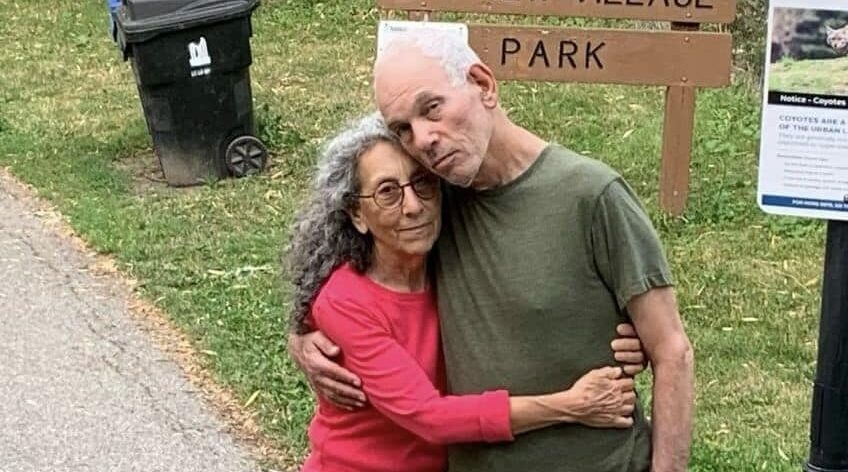
Judith Weinstein, left, and Gadi Haggai, right, in an undated photo. (Courtesy/Hostages and Missing Families Forum)
Judith Weinstein, 70, a member of Kibbutz Nir Oz, was born in Goshen, New York and moved with her family to Toronto when she was 3. Her husband, Gadi Haggai, 72, was a flute player and composer who performed in a military band during his IDF service. He worked as Nir Oz’s dining hall chef. The couple met shortly after Haggai’s release from the military while Weinstein was volunteering on Kibbutz Ein Hashofet, Haggai’s hometown. Haggai’s mother was born and raised in Manhattan and his father is from Detroit. Judith was an English teacher for special needs students at a high school in Magen. She also taught children to cope with anxiety caused by the conflict through meditation and mindfulness. Judith was fatally wounded during the terrorist invasion of southern Israel, Nir Oz said on Dec. 27. The week before, the Hostages and Missing Families Forum said Gadi had been killed on Oct. 7.
Jonathan Samerano, 21, “the life of any party”
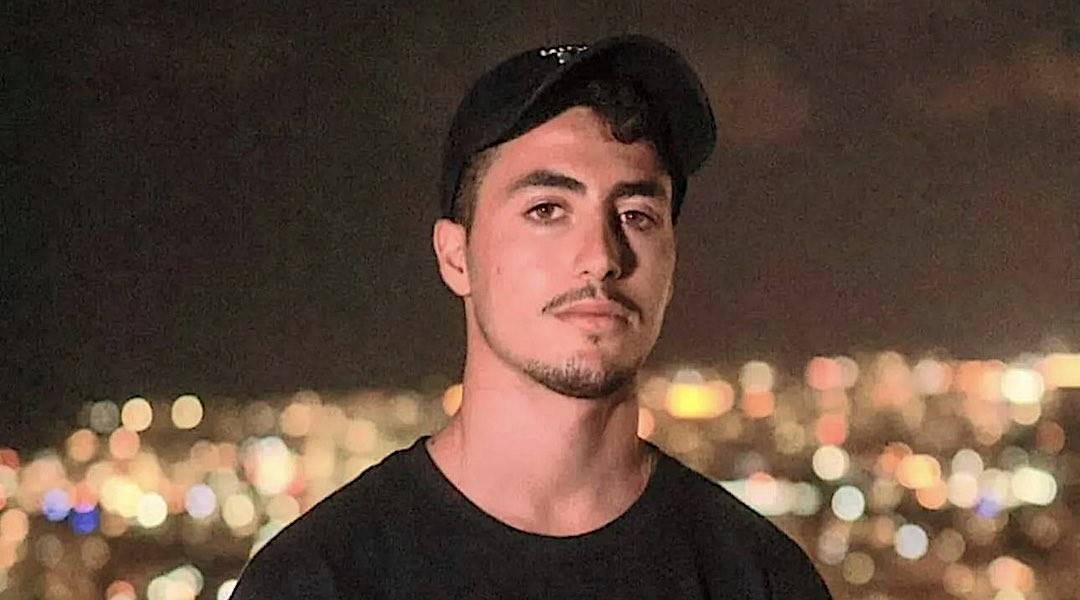
Jonathan Samerano, 21, was a deejay at the Supernova music festival where hundreds of revelers were gunned down. (Via Haaretz)
Nearly every day in Israel since the Hamas attack, a family of someone who has been missing receives confirmation that their loved one is dead. On Dec. 4, the devastating news came for the family of Jonathan Samerano, 21, who was a deejay at the Supernova music festival where hundreds of revelers were gunned down. His family initially held out hope that he had sought refuge in nearby Kibbutz Be’eri, and then were told to presume that their son was captive in Gaza.The announcement of his death did not make clear whether he was killed on Oct. 7 or in captivity. “His family says he was always the life of any party,” the Times of Israel reported.
Hayim Katsman, 32, a peace activist cut down in his prime
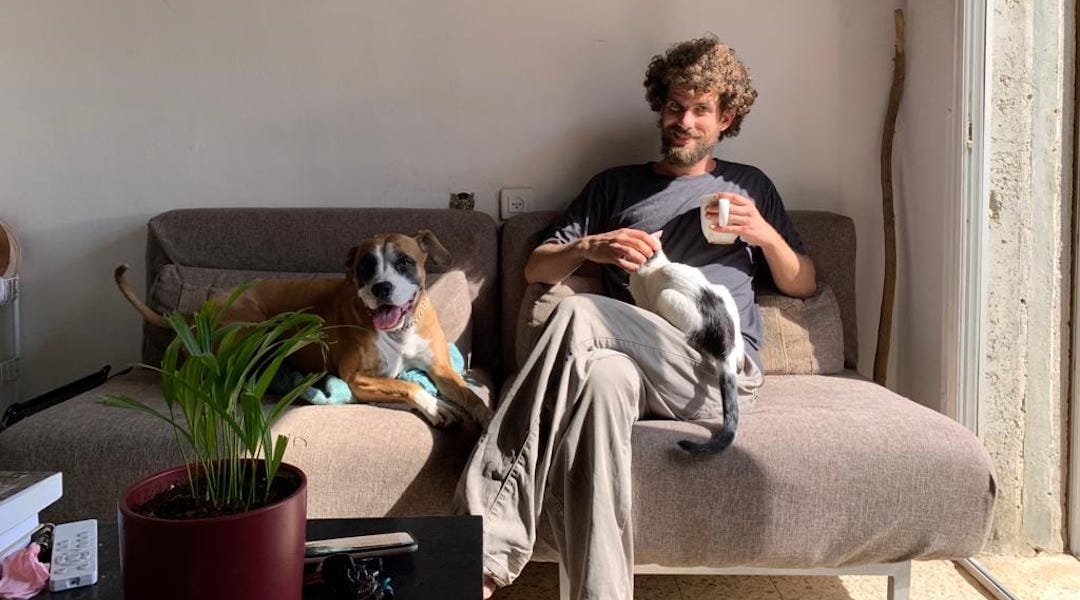
Hayim Katsman (Courtesy Hannah Katsman)
Hayim Katsman received his Ph.D. from the University of Washington Jackson School of International Studies in 2021, dedicating his scholarship to understanding the interrelations of religion and politics in Israel and the Palestinian territories. Back home in Israel, he opposed the occupation, refusing to visit settlements and volunteering in an Israeli coalition that organized “protective presence” solidarity shifts in Palestinian communities under threat in the South Hebron hills. Recently he ran a student volunteer program to develop a community garden for mothers and children in the Bedouin town of Rahat.
On Saturday, he was murdered by Hamas terrorists in his home in Kibbutz Holit. His sister, Noy, told a Seattle TV station that terrorists had invaded his home, sparing a female neighbor but killing him.
Katsman celebrated his 32nd birthday on Oct. 3. His parents, Daniel and Hannah Katsman, moved to Israel from New York City in 1990. Hayim’s late grandfather was Ben Zion Wacholder, a Dead Sea Scrolls scholar at the Hebrew Union College-Jewish Institute of Religion.
While getting his master’s degree at Ben-Gurion University, Hayim headed the adjunct professors’ union. He taught Hebrew school at a synagogue while living in Seattle.
After working as a car mechanic for many years, he became the gardener of the kibbutz, his mother told the Jewish Telegraphic Agency. For a while, he opened a bar on the kibbutz. “He was a vegan and cooked and baked. At the beginning of the pandemic, when making sourdough became popular, he asked me how it felt to have started a trend,” Hannah Katsman said.
Hayim played the bass guitar and held performances as a DJ with a mix of Jewish and Palestinian music.
“He was good-natured, a supportive son, a friend to me and many others,” said his mother, the resource development coordinator at the Center for Women’s Justice. “He lent Oee his ancient, cherished car during his recent trip to India, although it looked like a wreck it ran smoothly. Once when I was outside replacing the oil, someone drove by and handed me his card, offering to buy it. I didn’t get a chance to tell Hayim. I believe all the cars in the kibbutz were destroyed by the Hamas terrorists.”
Clemence Mtenga, 22, an intern on his first trip outside of Tanzania
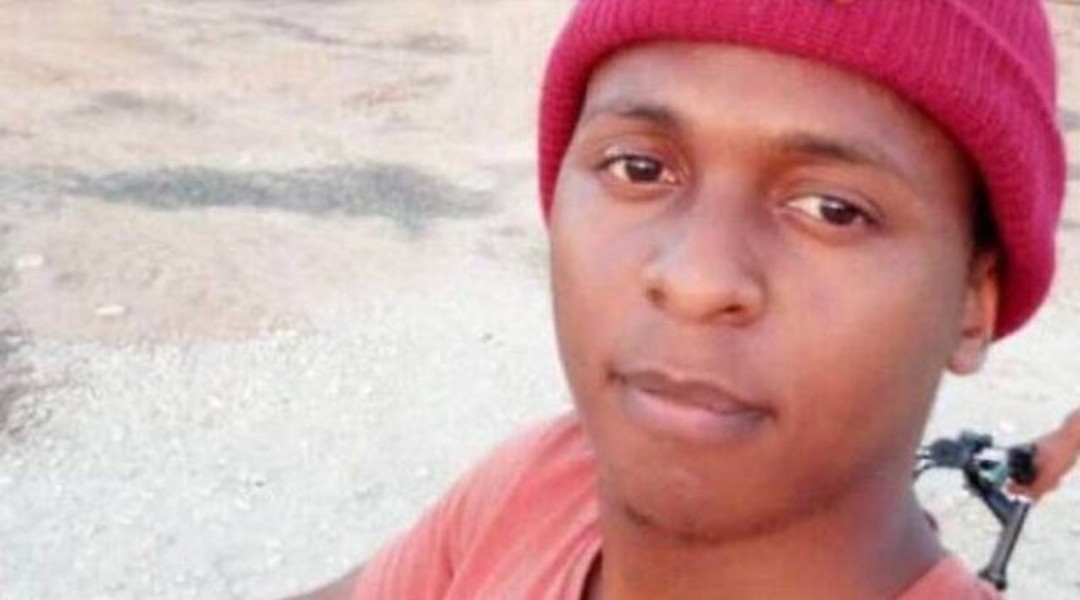
Clemence Mtenga of Tanzania was an agricultural intern at Kibbutz Nir Oz when Hamas attacked on Oct. 7. (Via Times of Israel)
As part of Israel’s support for developing countries, the training center Agrostudies partners with Sokoine University of Agriculture in Tanzania to train interns on farms throughout Israel. One of those interns was Clemence Mtenga, who arrived in Israel in mid-September, his first time traveling out of Tanzania. Mtenga was living on Kibbutz Nir Oz and working in its dairy farm when Hamas gunmen invaded southern Israel from Gaza on Oct. 7. On Nov. 18, authorities identified his body; although the circumstances of the 22-year-old’s death are unclear, he and a fellow intern, Tanzanian Joshua Mollel, 21, had been missing since the attack. Mtenga was to have graduated from Sokoine University last Thursday. His sister told the AP that Mtenga was shy and studious, and was very excited to study in Israel. “He was so excited to learn and meet new people,” Alphoncena Mtenga told the news agency. “He wanted to start his own agri-business.”
Yehudit Weiss, 65, a mom, grandma and kibbutznik

Yehudit Weiss, 65, of Kibbutz Be’eri, was a retiree and mother of five. (Via Times of Israel)
Yehudit Weiss, 65, of Kibbutz Be’eri, was among the more than 200 people kidnapped by Hamas on Oct. 7. Her husband, Shmulik Weiss, was found murdered that day. Last week the IDF announced that her body was found near Al Shifa Hospital in Gaza. A retiree and mother of five, she worked with kindergarten kids and in the kibbutz dining room. Weiss was being treated for breast cancer in recent months. “It’s important for us to say that we fought, we battled in every possible way to bring mom, Grandma Yehudit home,” her daughter-in-law. Zemer Weiss, told the Israeli media. “For us, it is too late, but it is important for us to support all the families of the hostages, and to tell the world, bring them home now, so that for them it is not too late, like it was for us.”
Noa Marciano, 19, a “girl of music and literature, a girl of love”

Noa Marciano, 19, of Israel’s Combat Intelligence Collection Corps, was serving at the Nahal Oz IDF on Oct. 7. (Courtesy)
Noa Marciano, 19, of Israel’s Combat Intelligence Collection Corps, was serving at the Nahal Oz IDF base when she was taken hostage by Hamas on Oct. 7. On Nov. 13, Hamas posted a video of Marciano in captivity; she was confirmed dead by the Israeli army hours later. At her funeral on Nov. 17, family members wore T-shirts bearing an image of Marciano in the cap and gown she wore at her high school graduation. In the weeks since her capture, her mother Adi had traveled to the United States to raise awareness about the hostages. In her eulogy, Adi recalled her daughter as a “girl of music and literature, a girl of dimples and smiles, a girl of love,” who wanted to serve her country.
Vivian Silver, 74, “persistent in the pursuit of peace and justice”
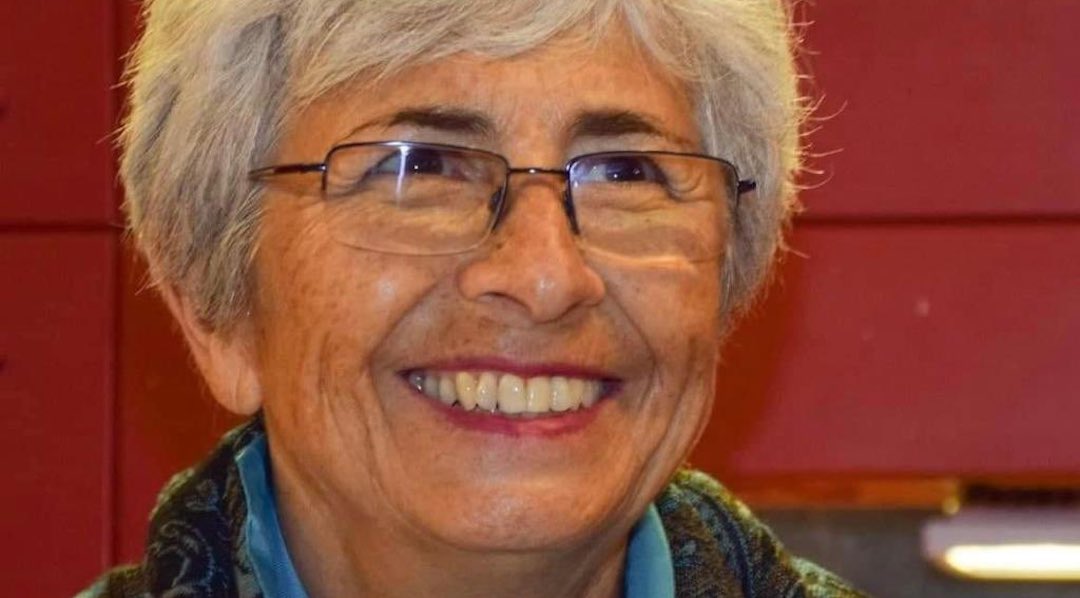
An undated photo of Vivian Silver. (Twitter/X)
Vivian Silver, 74, a Canadian-Israeli peace activist who had been presumed kidnapped by Hamas, was declared dead in November after her remains were found at her home at Kibbutz Be’eri. Born in Winnipeg, Canada, she was the longtime director of the Arab Jewish Center For Empowerment, Equality, and Cooperation, which organized projects joining communities in Israel, the Gaza Strip and the West Bank. In 2014, after the last major war between Israel and Hamas, she helped found Women Wage Peace, which promotes peace-building actions among women from all communities and across the political spectrum. “Vivian was always persistent in the pursuit of peace and justice,” Shifra Bronznick, a Jewish social justice activist and lifelong friend of Silver’s, told JTA on Nov. 14. “She was a lifelong feminist, a committed activist, a fearless leader, an exceptional friend and a loving mother, wife and grandmother.”
Ofer Liebsten, 51, the mayor of his beloved desert town
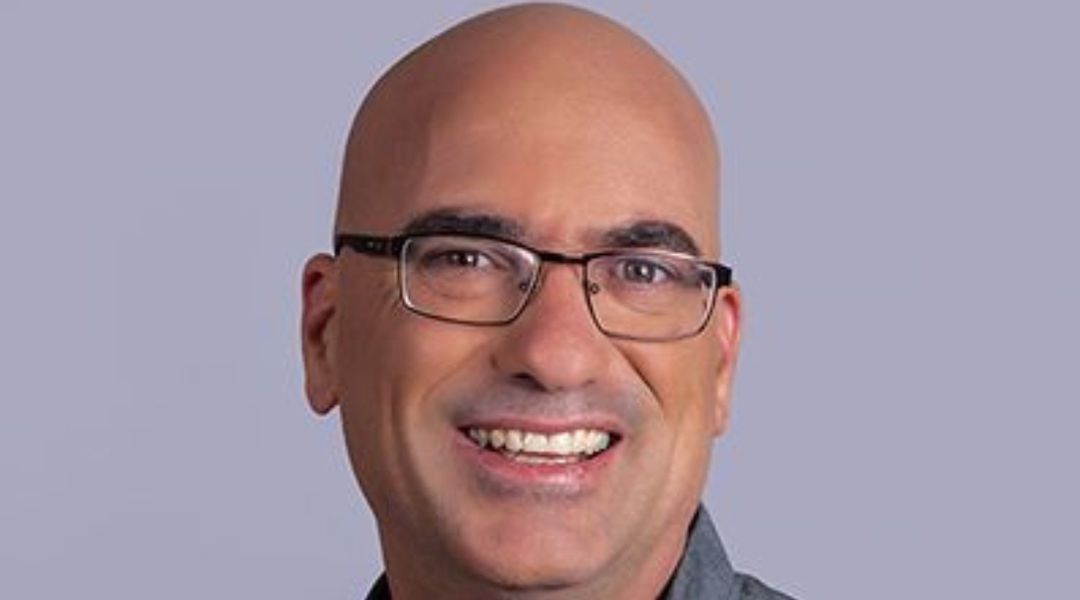
Ofir Liebstein, 51, was the head of the Sha’ar Hanegev Regional Council. (Via Facebook)
Ofir Liebstein, 51, the head of the Sha’ar Hanegev Regional Council, was killed in the initial attack by Hamas on southern Israel on Oct. 7. The father of four, born in 1973, was known as the biggest booster of the small town close to the Gaza Strip. He tackled traffic and safety issues on its main road, encouraged his Facebook followers to eat at local restaurants and dreamed of attracting entrepreneurs to Israel’s southern frontier. He was mourned as far away as San Diego, a sister region of Sha’ar Hanegev, where the city’s mayor, Todd Gloria, remembered Liebstein as a “friend” whose death is “absolutely heartbreaking.” Liebstein’s 19-year-old son Nitzan was also killed in the Oct. 7 Hamas massacre at Kibbutz Kfar Aza, where he lived with his family; he was considered missing until his body was found 12 days later.
Haim Ben Aryeh, bus driver who saw too much
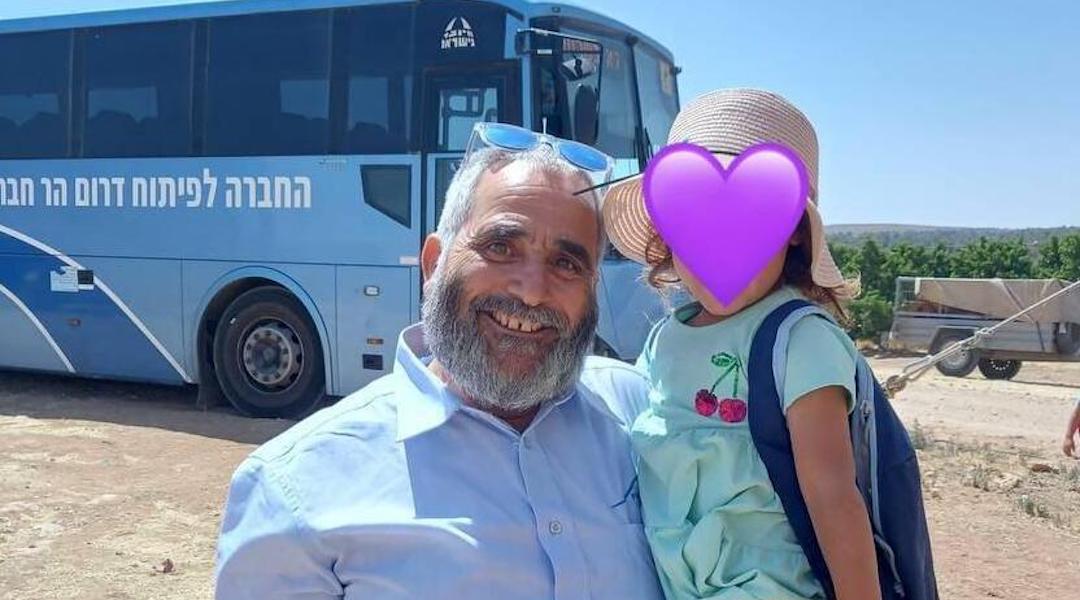
Haim Ben Aryeh (Via Ynet)
Haim Ben Aryeh was known as “Haim the Driver” to the children of Gush Katif, the bloc of Israeli settlements in the southern Gaza strip from which Israel withdrew in 2005, and in the Lachish Region where he drove a school bus for decades. After the surprise attack by Hamas on Oct. 7, Ben Aryeh helped evacuate children from Kibbutz Be’eri, where Hamas killed more than 100 people. “The first sentence he said when he came home crying in the middle of the night was, ‘I couldn’t help them,’” his wife, Irit told Ynet. He saw children wrapped in blood-stained blankets and elderly people wrapped in towels. In his years as a driver, Ben Aryeh had seen his share of violence: Shots were fired at his bus in Gush Katif, and he drove an ambulance. But the horrors of Oct. 7 proved too much for the father of eight: On Oct. 26, he was found dead inside his bus, having apparently died by suicide. (His age was not available.) “There are victims in war, there are victims on the front, that is known, but the victims of the home front are the victims of the mind,” said Irit. “He was a wonderful man and as great as his immense love, as great as his joy and light, his good eyes could not bear this darkness.”
Haim Shani Louk, 23, an influencer seen in a heartbreaking video
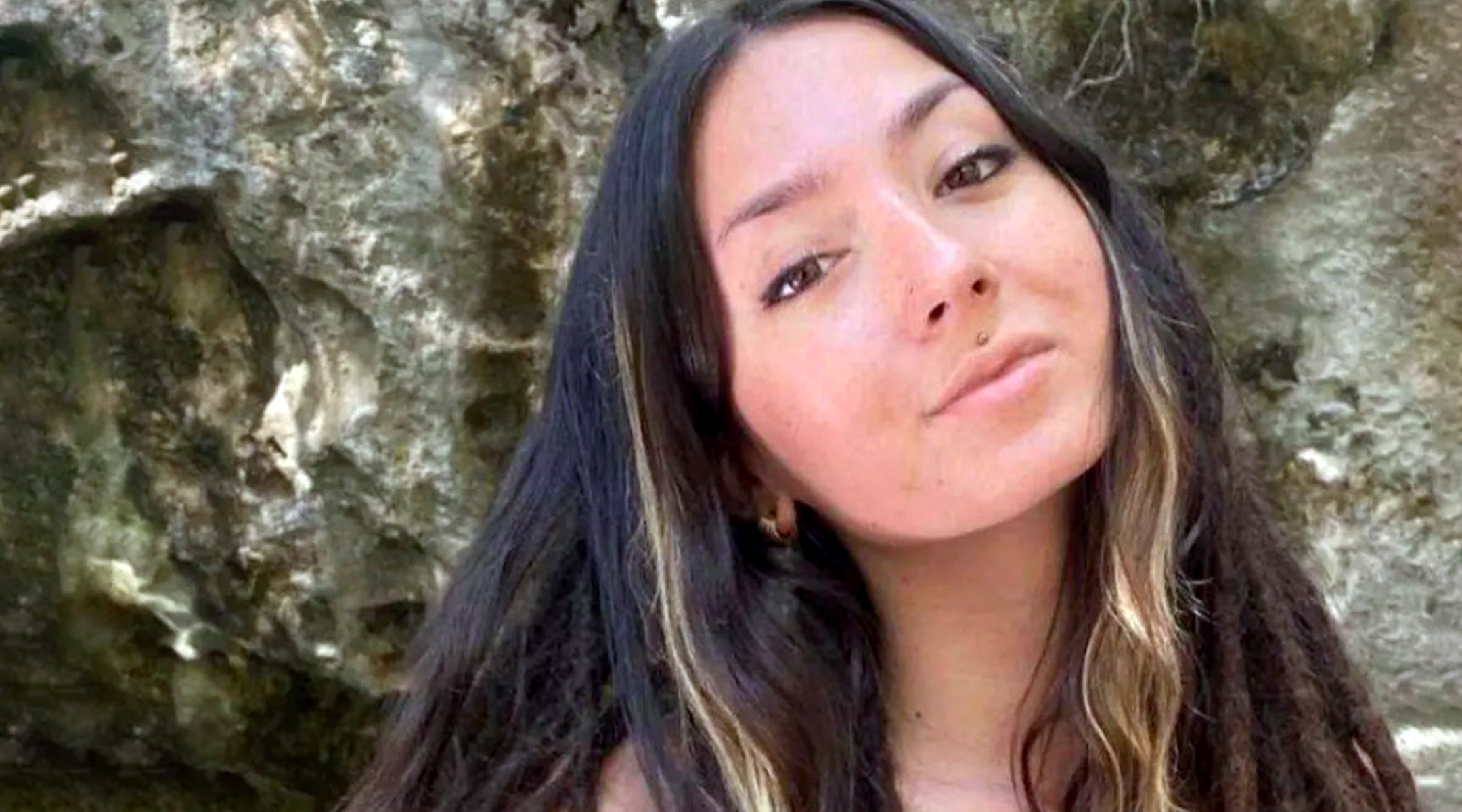
Shani Louk (Via Instagram)
Shani Louk, 23, was the daughter of an Israeli father and German mother, whose parents met in Germany and moved back to Israel. In the early 2000s, the family lived briefly in Portland, Oregon, where Louk attended kindergarten at the Portland Jewish Academy. Living in Tel Aviv, she worked as a freelance tattoo artist and had a following on Instagram. On the weekend of Oct. 7, she attended the Tribe of Nova dance rave in the Negev and was seen on video dancing happily among fellow festival-goers. On that Saturday, Hamas gunmen killed some 260 at the rave, and a partially clothed Louk was identified among those taken hostage. On Sunday, her family told reporters that they had been told by the Israeli military that their daughter had received a fatal wound in the intial attack and probably was already dead when Hamas paraded her body into Gaza. The Israeli Foreign Ministry said they were “devastated to share that the death of Shani Louk was confirmed.”
Omer Balva, 22, graduate of a Jewish day school in Maryland
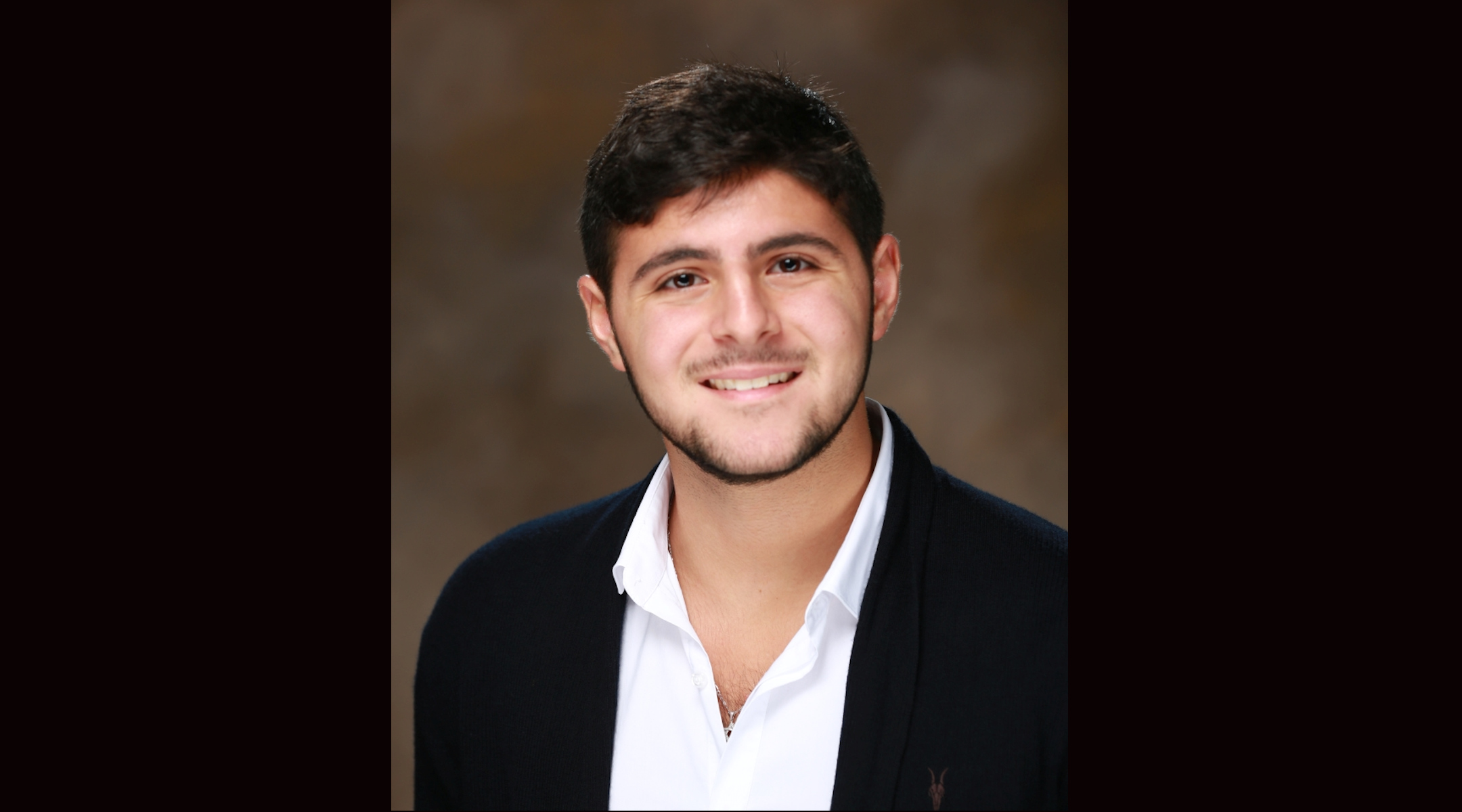
Omer Balva, seen here in his high school senior photo, was killed on Israel’s northern border on Oct. 20, 2023. (Courtesy Charles E. Smith Jewish Day School)
Omer Balva was on vacation in Maryland, where he was born and lived until graduating from high school, on Oct. 7. The child of Israeli parents who lived in the United States for decades, Balva, 22, recently finished a stint in the Israel Defense Forces and was among the 360,000 reservists called up as Israel mobilized to respond to the attack. Like an untold number of Israelis in the United States, he quickly booked a flight, packed safety gear and headed home. There, Balva was killed Friday by a rocket fired by Hezbollah from Lebanon, just days after he was deployed to Israel’s northern border. Balva’s death was a blow not only to his family and country but to his friends and teachers from Charles E. Smith Jewish Day School in Rockville, Maryland, which he attended starting in second grade.
Yannai Kaminka, 20, officer who fell defending new recruits
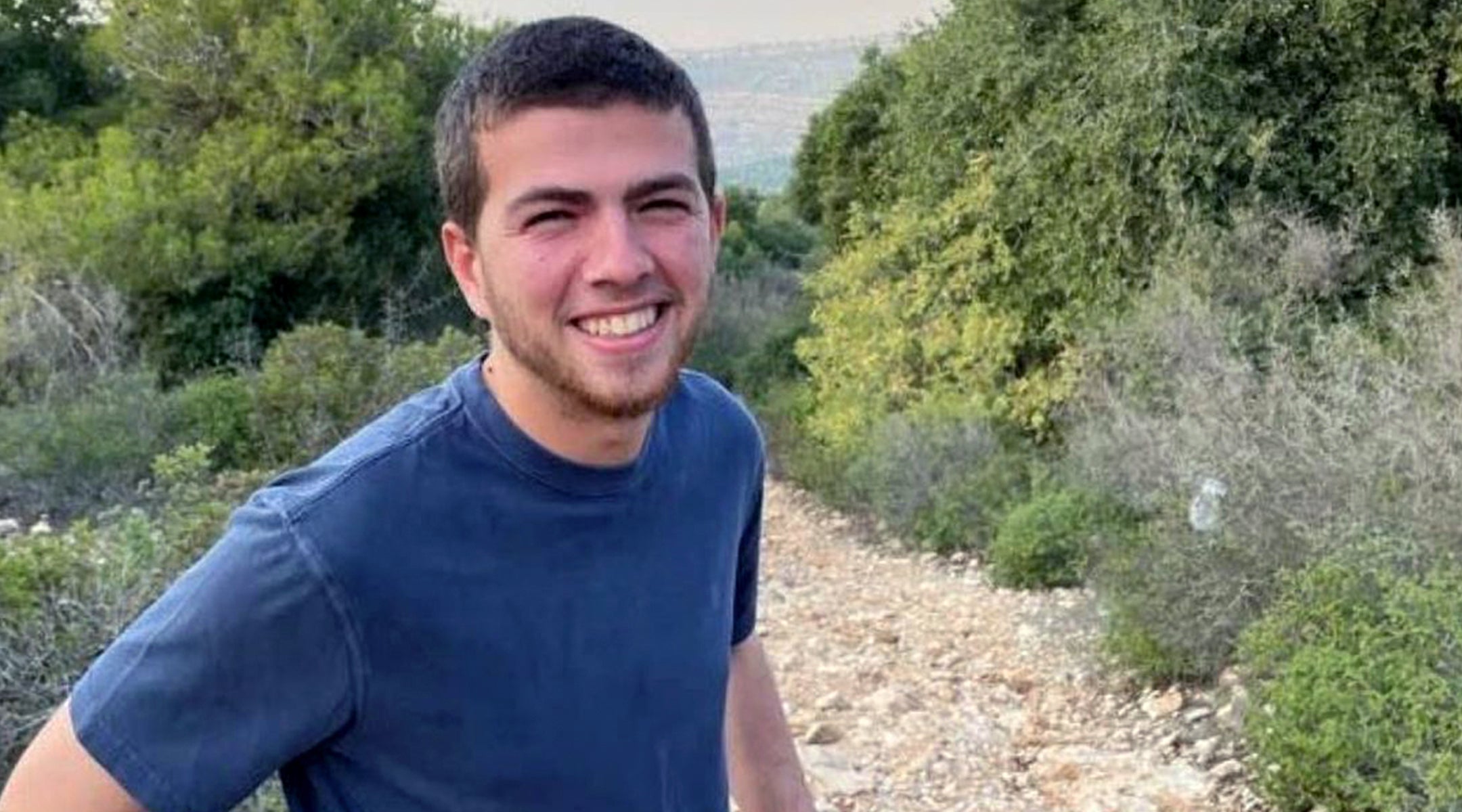
Yannai Kaminka, 20, was killed by Hamas while protecting an Israeli army base near Zikim on Gaza’s northern border. (Facebook)
On Oct. 7, Hamas gunmen swarmed an Israeli army base in Zikim, on the north side of the Gaza border. First Lt. Yannai Kaminka, 20, was among the officers killed in the defense of the base, which saved the lives of around 90 new recruits. Kaminka was the son of Eyal and Elana Kaminka of Tzur Hadassah, a village southwest of Jerusalem. His father is a lecturer and consultant who formerly served as director of the International School for Holocaust Studies at the Yad Vashem Institute in Jerusalem; his mother, originally from Davis, California, is active in Tag Meir, a nonprofit that promotes coexistence between Arabs and Jews. Yannai was also a madrich, or leader, in the Israel Scouts movement. In an essay for JTA, one of his former scouts, high school junior Benjamin Siegel of Westchester County, New York, remembered Kaminka as “smart, fun, funny, strong. We always tried to tackle him and take him down, but he was too strong for us. We didn’t mind. He was like a big brother to us all.”
Sigal Levi, 31, social worker who helped others choose life
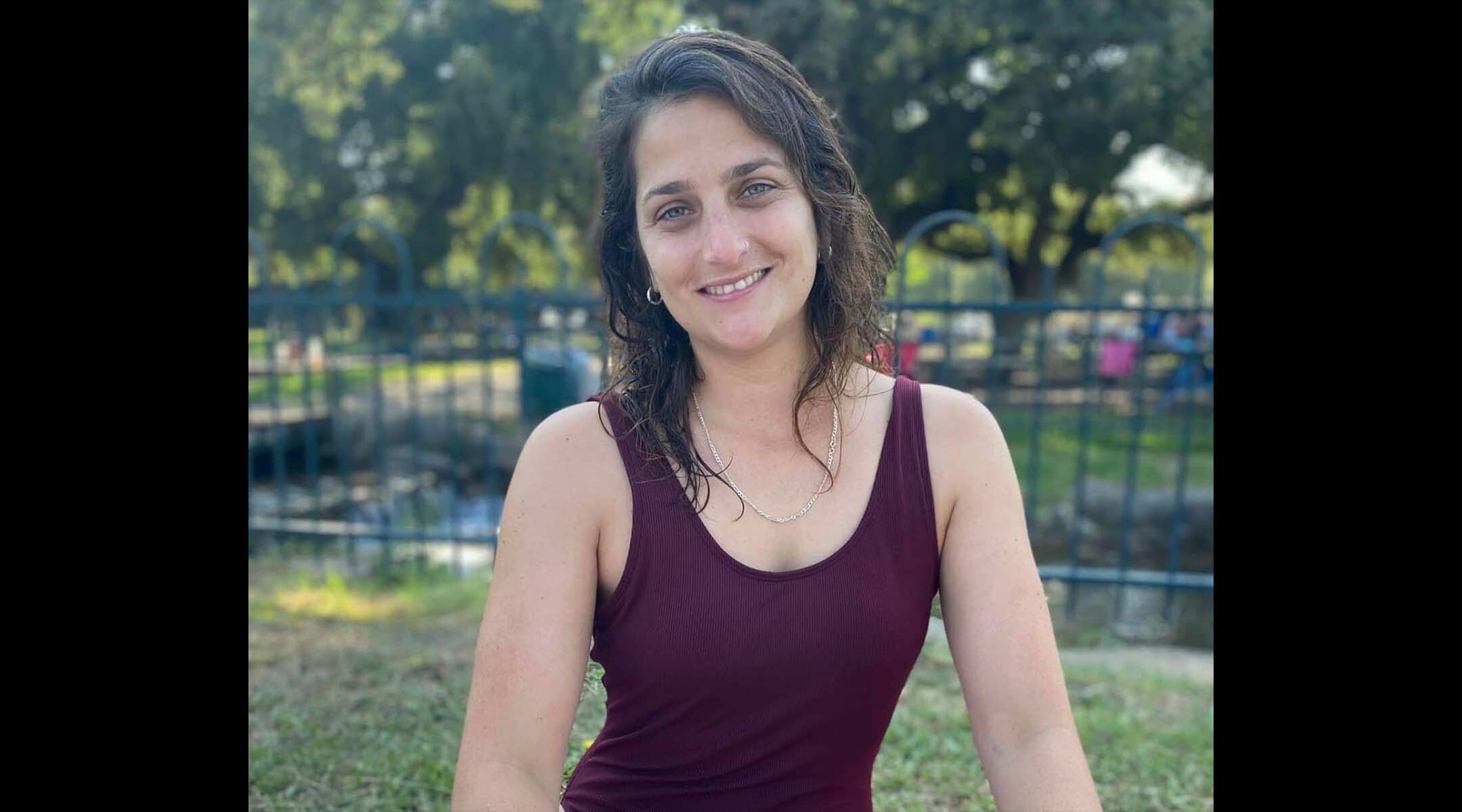
Sigal Levi (Facebook)
On Saturday, Oct. 7, Hagar Levi shared a photo on Facebook of her younger sister Sigal Levi, writing that she was at a party near Kibbutz Reim and had not been heard from since. Sigal, a social worker, had gone to the party as a volunteer with Elem, an Israeli nonprofit that works with at-risk youth, providing counseling, emotional support and individual mentoring. Elem’s “Good People” volunteers go to raves and other youth gatherings to distribute literature and encourage troubled young people to “free themselves from drugs and unhealthy home environments.”
Sigal, 31, was killed during the Hamas attack on the party. Her funeral was held Wednesday in Netanya. She is survived by her parents, three siblings and her fiance, to whom she was to be married in three months.
“Sigal was there for the boys and girls — she rose up in the morning and went to sleep at night thinking about them,” Elem recalled in a Facebook post. “There are girls that because of her chose life, discovered powers in themselves and knew they had an address, a hug, a shoulder and kind eyes.”
Idan Herman, 26, an engineering student who loved the sea
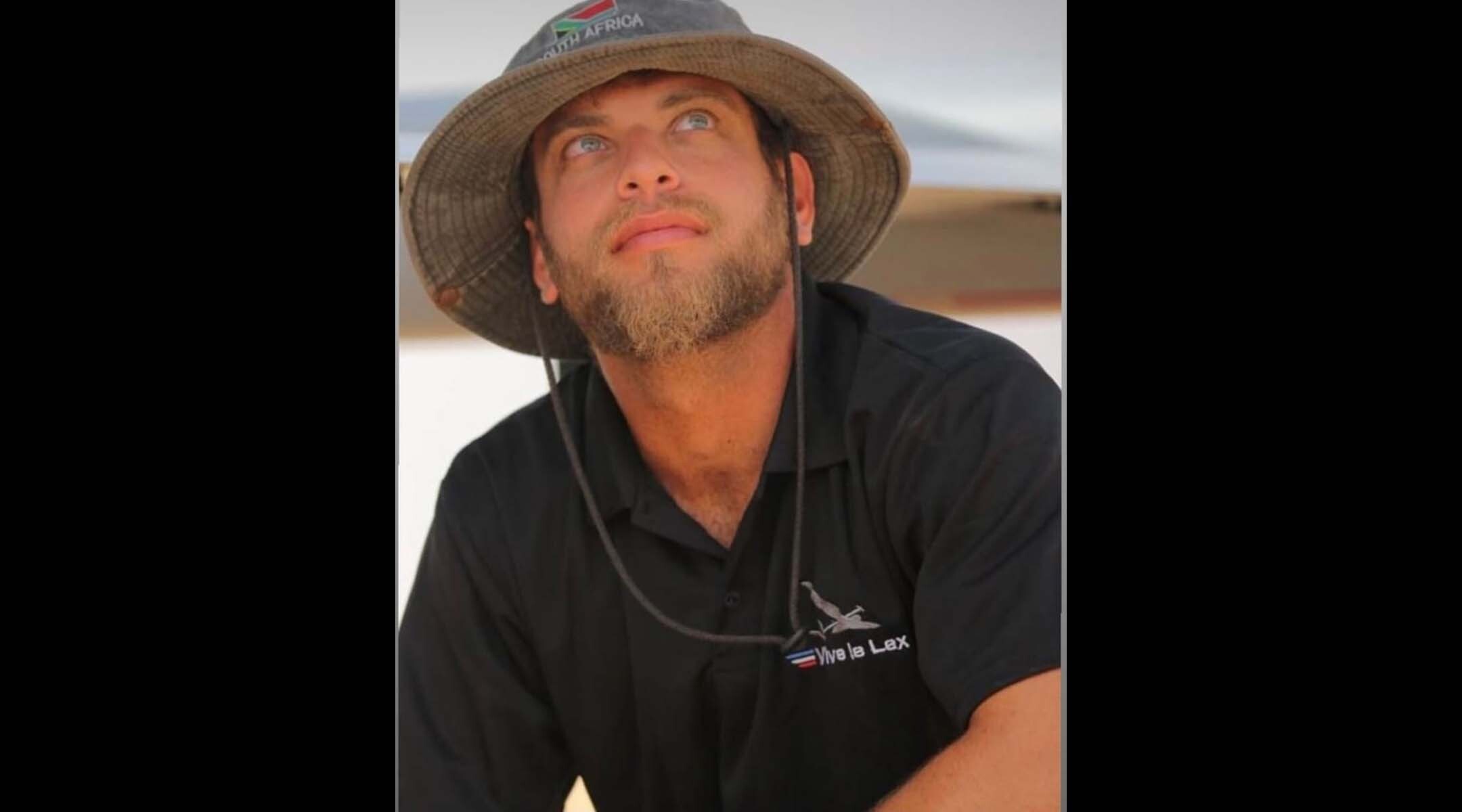
Idan Herman (Courtesy Rona Lotan)
Idan Herman was a first-year engineering student at the Afeka College of Engineering in Tel Aviv. Raised in Palmachim, a kibbutz on Israel’s central coast, he loved the sea.
On Saturday morning, Oct. 7, his parents, Revital and Avri, got a call from their son saying that he and his girlfriend, Eden Naftali, 23, were at the Supernova music festival near the border with Gaza and that he and other concert-goers were under attack by Hamas terrorists. At one point he stopped talking and Revital could hear only gunshots.
Avri Herman told the Wall Street Journal that his son was hit with shrapnel in his leg and chest. They later identified his body at Soroka Medical Center in Beersheva, after first being shown a body of another victim. Idan was buried last week at Palmachim, close to the sea. Survivors include his two sisters, Noa and Nofar. Eden was also confirmed dead.
Tal Eilon, 46, killed three terrorists before falling in battle
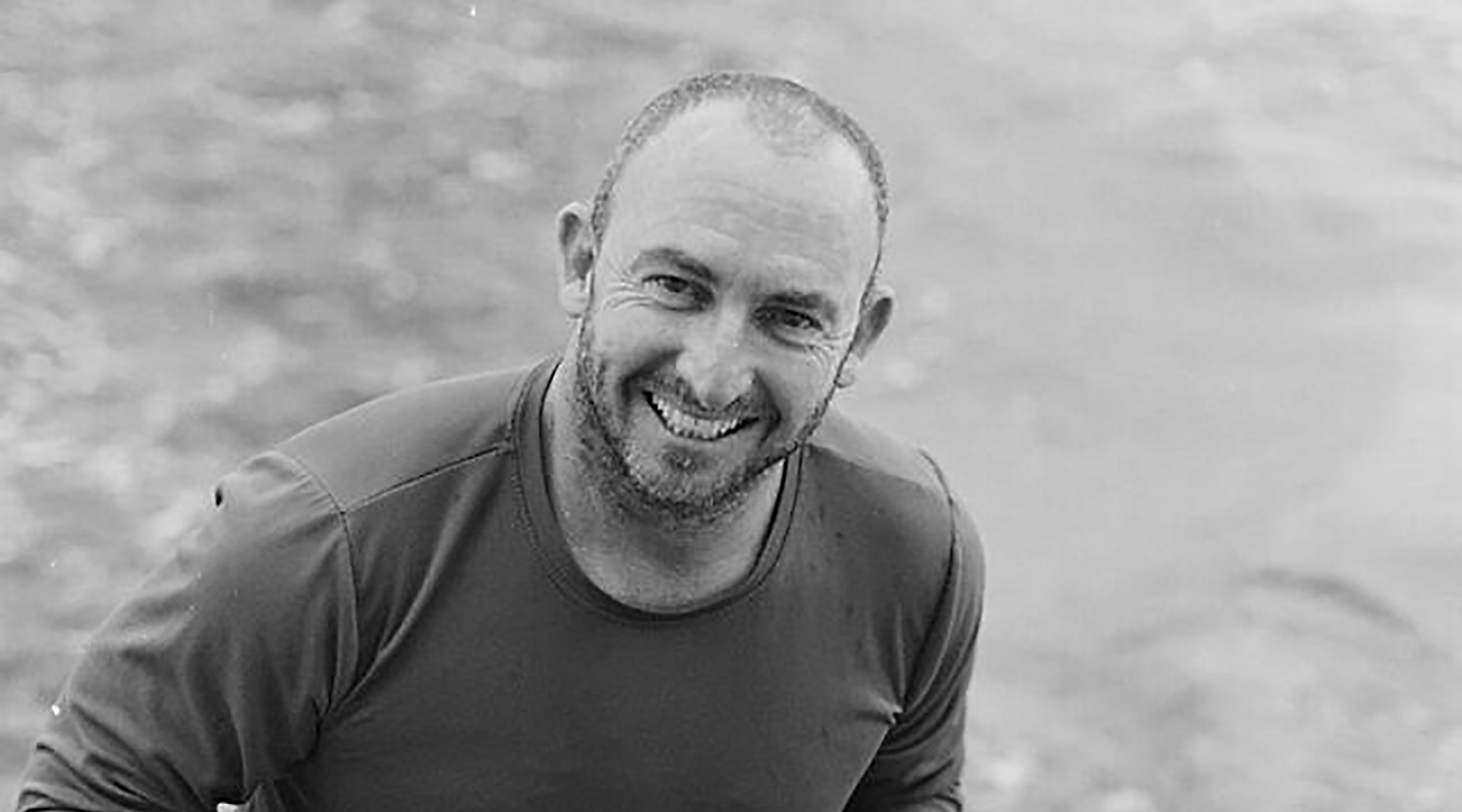
Tal Eilon (Facebook, via Times of Israel)
Tal Eilon, 46, a port worker in Ashdod, commanded the community security team at Kibbutz Kfar Aza when it came under attack by Hamas terrorists on Oct. 7. Micha Kichka, who served as Eilon’s officer in the army, told the Times of Israel that Eilon’s team killed three attackers before he fell in battle.
More than 100 civilians were murdered at Kfar Aza, on the border with Gaza.
“He was a soldier with morals — professional, intelligent and with values,” said Kichka.
Ben Uri, 31, a “brother in yoga” to fellow army veterans
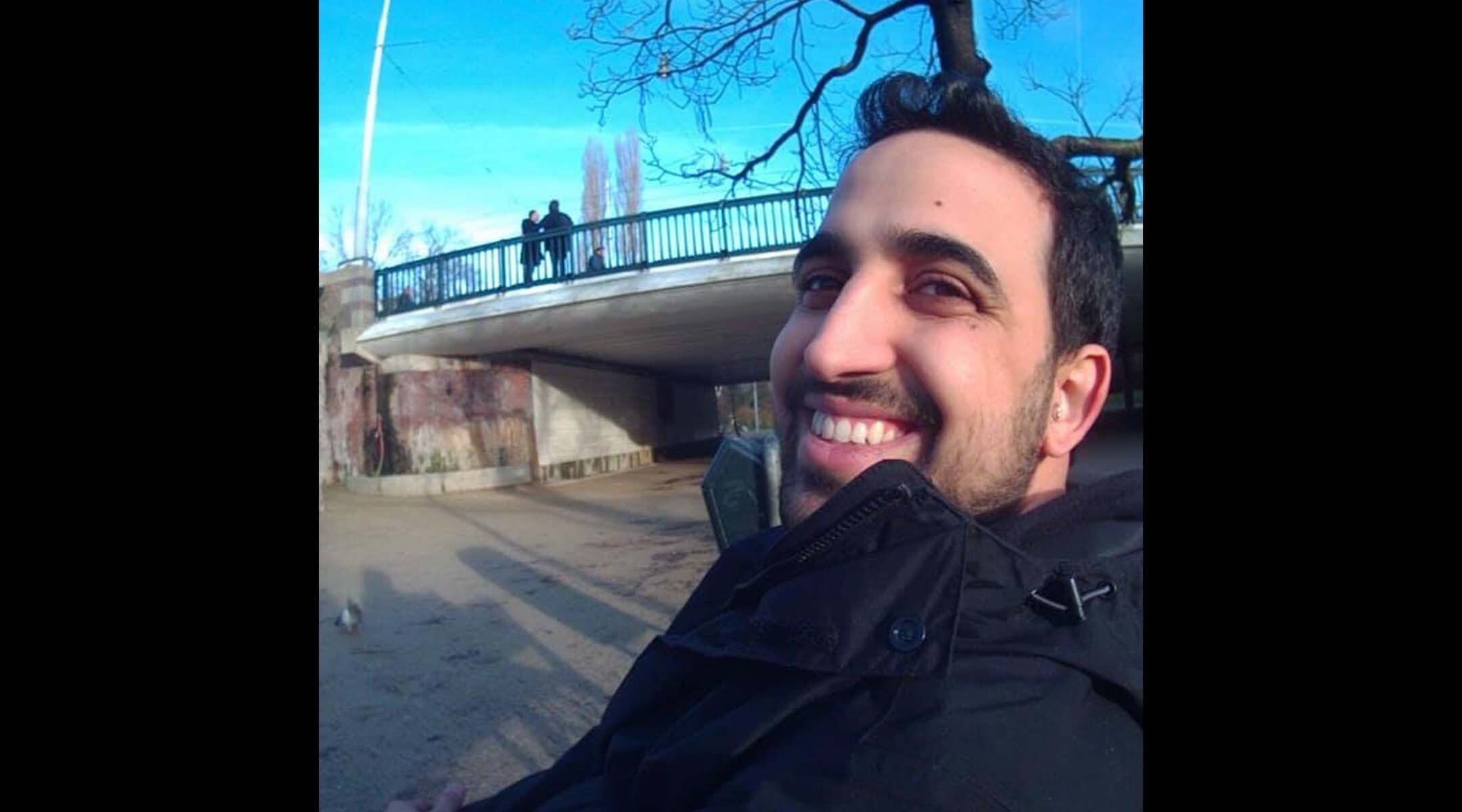
Ben Uri (Facebook)
Ben Uri, 31, a cannabis entrepreneur and tech consultant from Rishon Letzion, was a volunteer at Brothers in Yoga, an organization helping army veterans overcome trauma through yoga and meditation. After joining the organization, the Hebrew University graduate wrote, “I was filled with purpose and joy. I had a chance to be a part of something larger than myself. … The only thing I wish to do is to give back to the community without regard to the results, but I gain a great deal for myself as well.”
On Oct. 7, he went to the Supernova music festival near the Gaza border. Uri was reported missing for three days after the Hamas attack, and later confirmed among the hundreds of those killed. He is survived by his parents and two brothers.
“His associates say that he was a man with a huge heart, connected with everyone and was the glue in the group, always laughing and supporting everyone with a unique joy of life — and a captivating smile,” a local newspaper reported.
The Siman Tov family, gone in an instant of brutality
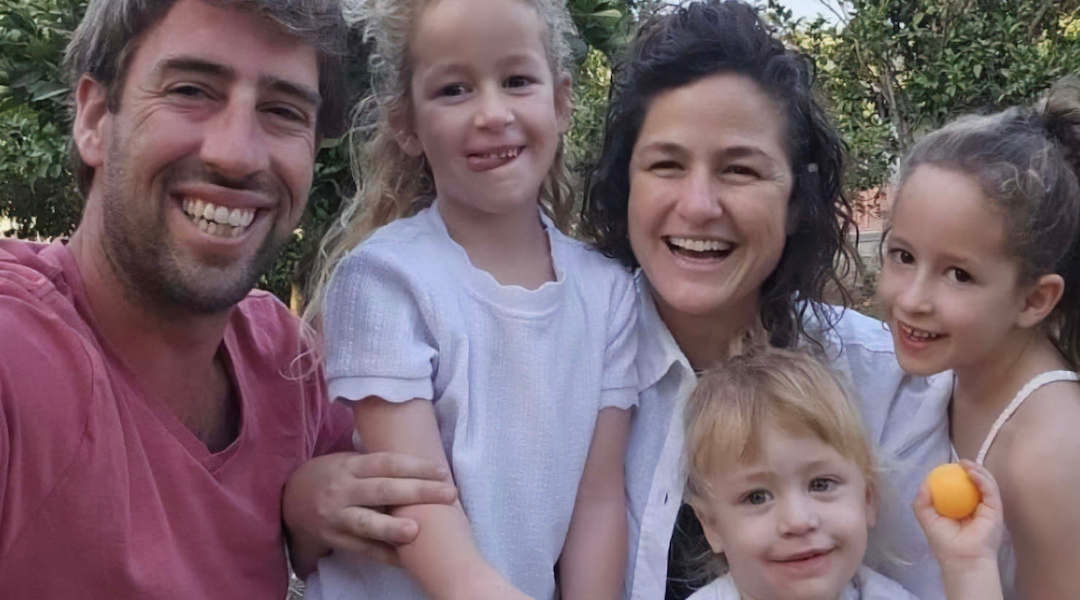
Tamar Kedem Siman Tov, her husband Johnny (Yonatan) Siman Tov and their three children. (Facebook)
In an instant of brutality, an entire family was gone: Tamar Kedem Siman Tov, her husband Johnny (Yonatan) Siman Tov and their three children, 6-year-old twins Shahar and Arbel and their 4-year-old son Omer, were murdered Saturday in Kibbutz Nir Oz on the Gaza border. The family were in their home “safe room” during a barrage of Hamas rockets and texted friends that they were safe, but Hamas gunmen broke in and slaughtered the family.
A community leader who was running to become head of the Eshkol Regional Council, Tamar served as an advisor to the ministry of the interior on regional issues and was the former director of the Bikurim Youth Village for Excellence in Art and Music, a boarding school for at-risk youth. “We create equal opportunities and enable youth with very little background in art or music, and with academic difficulties, to excel in these areas,” she once told an interviewer. “Those who have the desire and the basic potential are given an opportunity – with the help of the special educational team – to break through the glass ceiling.”
According to Tamar’s Facebook page, she grew up in Jerusalem and received her master’s in management and public policy at Ben-Gurion University. Johnny was an operations manager and wheat farmer on the kibbutz.
“Love Sukkot!” Tamar wrote on Facebook on Thursday, in the middle of the harvest holiday. “I enjoy the campaigning and am moved by the support and sympathy of the people I meet.”
Yoav Malayev, 19, a soldier who sprinted toward danger
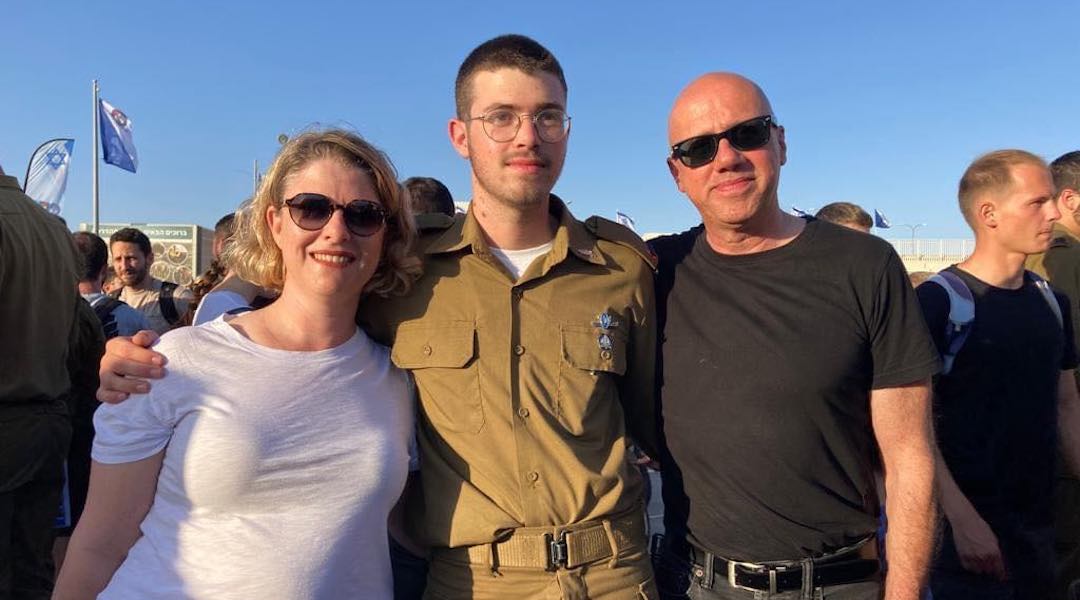
Yoav Malayev, 19, with his mother Maya Cohen-Malayev and father Alex Malayev (Courtesy Yonatan Cohen)
Yoav Malayev, 19, was killed in a battle with Hamas terrorists at the Zikim Army base during the opening hours of the war. On Saturday morning, when his emergency squad was called up, he rushed to reinforce the front gate, which he knew was being guarded by just one soldier. According to one account, he encountered 10 terrorists and engaged in “face-to-face” battle. Four of them were killed before he fell.
Yoav lived in Kiryat Ono, with his mother Maya Cohen-Malayev, father Alex Malayev and siblings Talya, Avner and Harel. “My sister, his mother, grew up in both Israel and Canada,” Rabbi Yonatan Cohen of Congregation Beth Israel in Berkeley, California, told JTA. “She returned to Israel in her early 20s and is a professor of educational psychology at Bar-Ilan University. His father is a retired colonel from the IDF and said to be the highest-ranking Bucharian Jew in in Israel.”
“Maya raised Yoav, their eldest, with utmost pride,” Rabbi Benjamin Lau, the former senior rabbi of the Ramban Synagogue in Jerusalem, wrote in a Facebook post. “He finished AP studies in both psychology and physics. A precise, sensitive, compassionate, and mission-driven individual, brimming with a sense of calling, he completed his officer training with honors and was posted to an armored brigade. Israelis are raising the next generation in this place with lots of faith and hope and with a profound understanding of the long, long road ahead.”
Debbie Shachar Troen Matias, 50, and Shlomo Matias, sheilding their son in their final moments
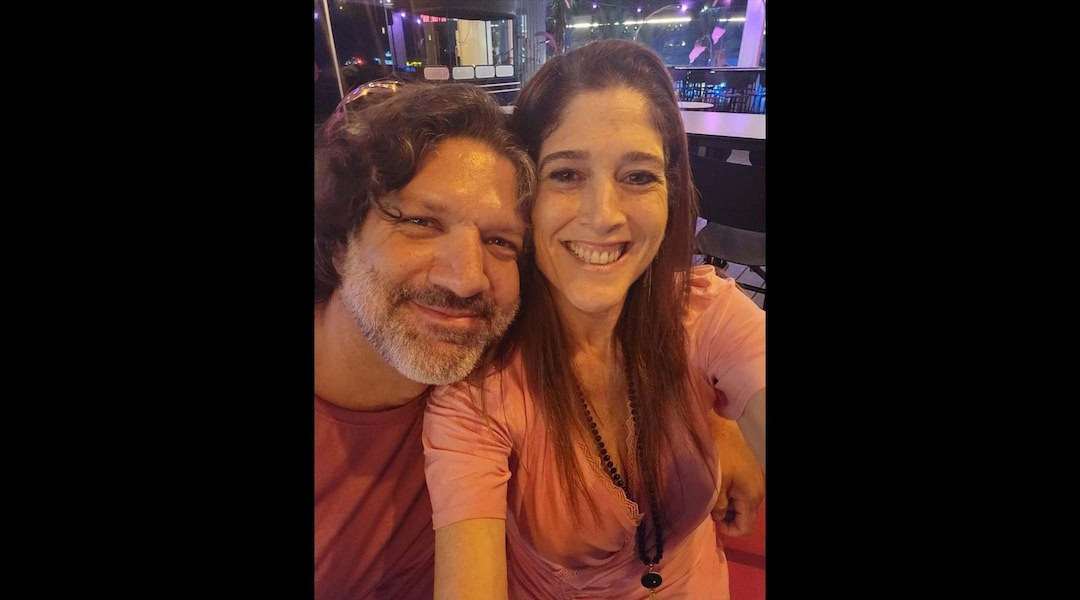
Debbie Shachar Troen Matias and Shlomo Matias (Facebook)
Debbie Shachar Troen Matias, 50, and Shlomo Matias were killed during the attack on Kibbutz Holit. According to their family, the couple were lying on top of and shielding their teenage son, Rotem, who was shot in the abdomen but survived. Debbie was the daughter of Prof. Ilan Troen, emeritus professor of Israel studies at Brandeis and Ben-Gurion Universities.
“My daughter and son-in-law were killed today, but, in their dying, saved [my teenage grandson’s] life,” Ilan Troen, who had recently returned to Israel upon his retirement from Brandeis, told NPR. “They were all together in the secure room. And they covered his body, and he was saved.”
Debbie attended the Berkeley College of Music in Boston and the Rimon School of Music in Tel Aviv, where she met her husband.
“[Deborah and Shlomi] loved music, life, each other, their kids. I would ask [Rotem] to think of the joy that they sought and had in their lives rather than the focus on that day,” Troen told WBZ-TV in Boston.
Moshe Ohayon, 51, and Eliad Ohayon, father and son, committed to education

Moshe Ohayon and Eliad Ohayon (Facebook)
Moshe Ohayon, 51, above left, of the southern municipality of Ofakim, grew up in Yad Rambam, a moshav in central Israel. As an educator, he was dedicated to bringing Israelis on the economic periphery “into the center of social and economic life in Israel — as a right, not a form of charity — by creating new initiatives to lead the way and helping future social entrepreneurs,” he once said. Ohayon was a graduate of the Mandel School for Educational Leadership and was director of the 929 Project, an effort to encourage people to read the entire Hebrew Bible over a four-year cycle. He was also board chairman of the Shaharit Institute, a nonpartisan think tank working to bridge social and political divides in Israel.
He and his son Eliad Ohayon, above right, a teacher thought to be in his 20s, were listed among those killed in the weekend attacks; Moshe’s wife and Eliad’s mother, Sarit, is among their survivors. There were no further details available.
Roey Weiser, 21, “loved by everyone who met him”
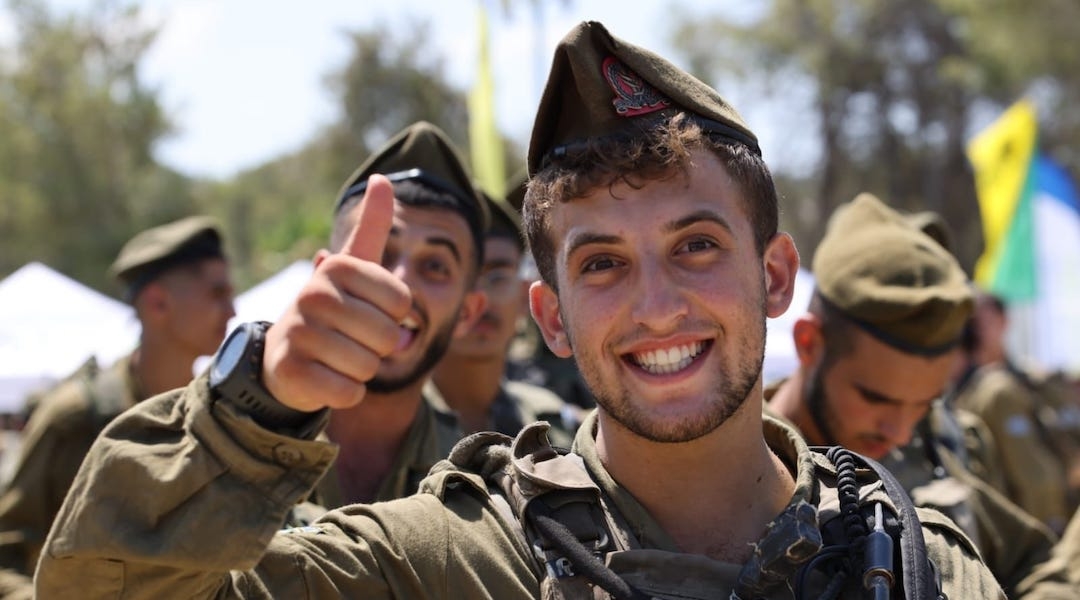
Reoy Weiser (Facebook)
Roey Weiser, 21, a first sergeant in the Golani Brigade, died trying to repel the first wave of infiltrators at or near Kerem Shalom, a kibbutz on the border with Gaza. Weiser was the son of Yisrael and Naomi Weiser of Efrat, who both immigrated to Israel from the United States with their families as children. A soldier who took part in Saturday’s firefight told the family that Roey “went out to fight the enemy almost all on his own and managed to repel the attack, but suffered a direct hit. Because of his bravery, 12 soldiers were saved.”
Roey “always had a smile on his face, a joke or a funny comment,” his uncle, Ashley Perry, a former advisor to Israel’s minister of foreign affairs, said on Facebook. “It is said very often and easily, but Roey was loved by everyone who met him and all wanted to be his friend and hang out with him.”
Lior Asulin, 43, star soccer player

Lior Asulin (Via X)
Lior Asulin, 43, who over 15 seasons with various teams established himself as one of the top strikers in Israel’s domestic soccer league, was among the more than 250 festival-goers gunned down at a desert rave in southern Israel after Hamas militants opened fire and looked to take many hostage. A native of Ra’anana, Asulin grew up in the youth system of the Maccabi Herzliya soccer club and was signed to a long-term contract with Herzliya after the 2001-2002 season. He also played with Apollon Limassol FC, a Cypriot sports club. Asulin had found peace working on a horse farm after serving nearly a year in prison in 2021 for selling marijuana. “The Hapoel Tel Aviv club bows its head and sends condolences and strength to Lior’s family at this difficult time,” one of his former clubs said in a statement.
Lt. Col. Jonathan Steinberg, senior officer and father of six
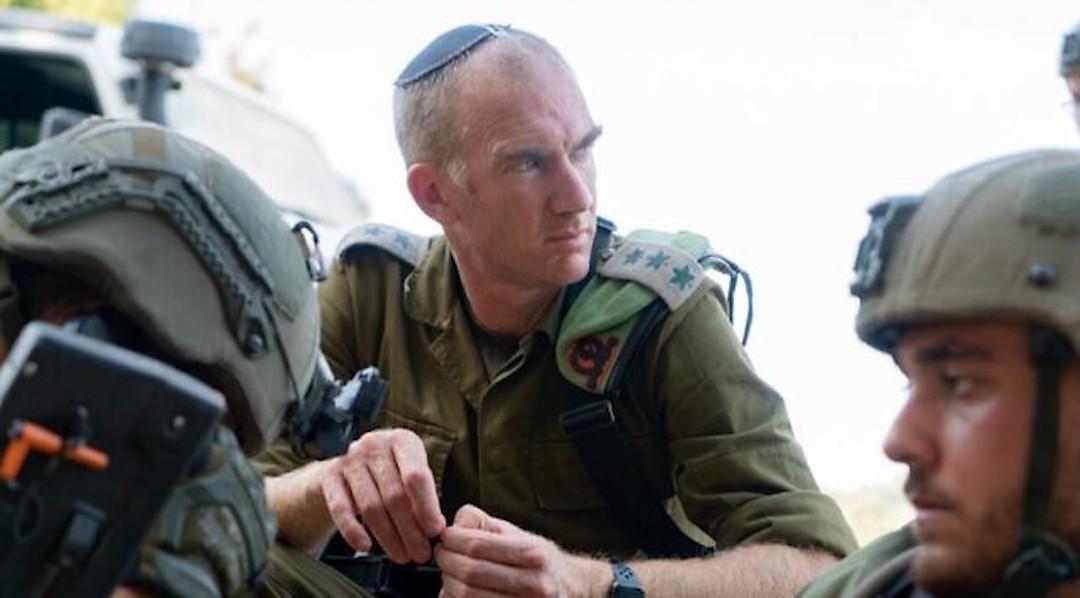
Lt. Col. Jonathan Steinberg, the commander of the Nahal Brigade, in an undated photo (Israel Defense Forces)
Lt. Col. Jonathan Steinberg, the commander of Israel’s elite Nahal Brigade, was killed Saturday during a confrontation with a terrorist near Kerem Shalom. Steinberg, of Kibbutz Shomria, was one of the most senior officers to have been killed in combat in recent memory, Times of Israel reported. Steinberg studied at Horev High School and Ma’ale Eliyahu Yeshiva in Tel Aviv. He enlisted in the Israel Defense Forces in 2000 and rose through the ranks, becoming commander of the brigade in May. He is survived by his wife and six children.
Mai Naim, 22, daughter of soccer royalty
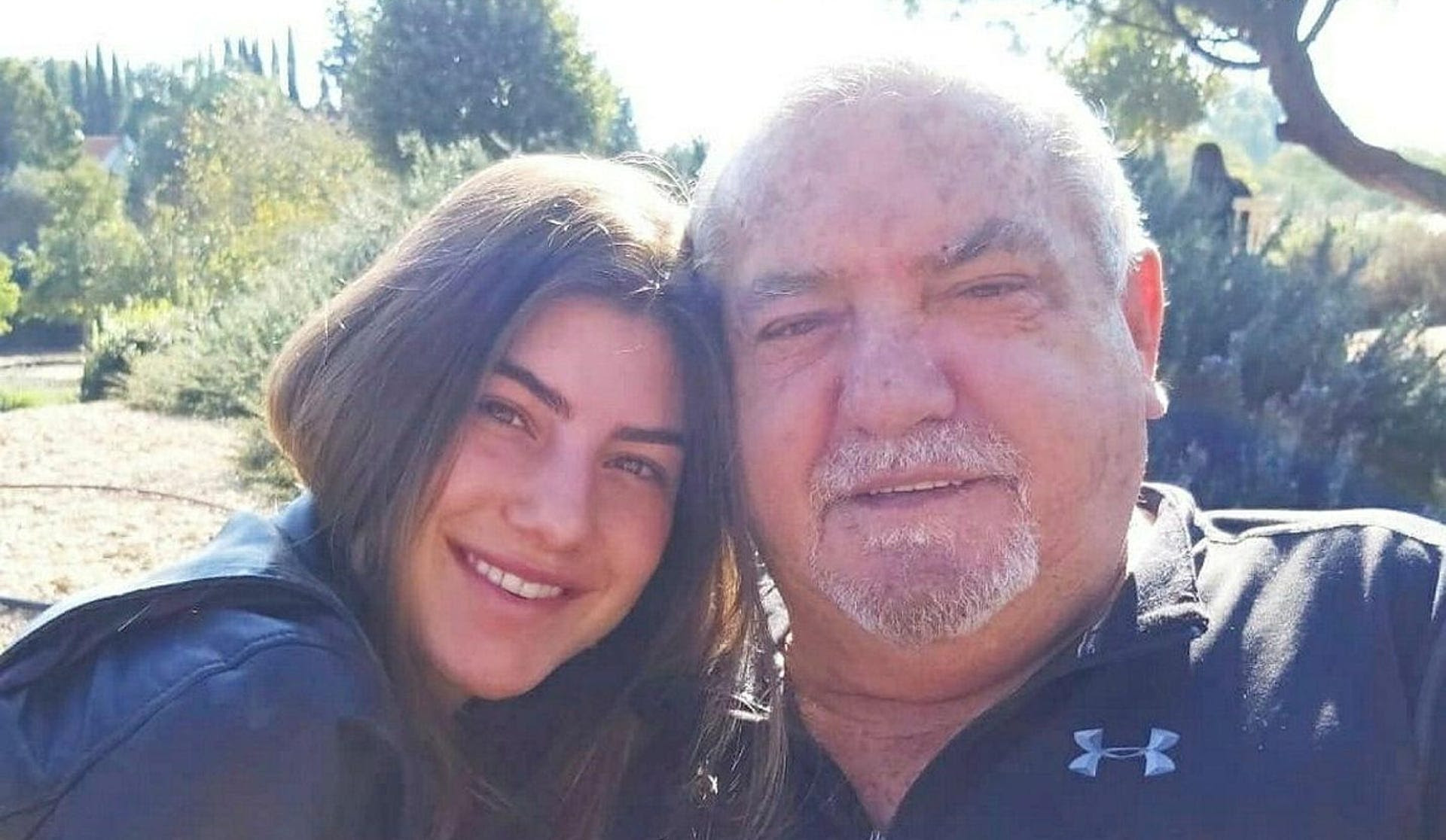
May Naim and her grandfather, Shlomo Sharaf (Courtesy)
Mai Naim, 22, the granddaughter of one of Israel’s most successful soccer coaches, was also among the more than 250 people killed by Hamas gunmen while attending the music festival near Kibbutz Reim. Friends said Naim decided only at the last minute to attend the festival; when gunmen overran the concert area, shooting into the crowd and grabbing as many hostages as they could, she sought shelter in nearby Kibbutz Be’eri but was pursued and gunned down. Her grandfather Shlomo Sharaf coached Maccabi Haifa to three championships and was manager of Israel’s national soccer team from 1992-1999.
Israel’s national Football Association issued a statement: “In these sad, painful days, moments that the mind and soul find difficult to contain, we wish to offer our condolences to the families of those killed, wish the injured a speedy recovery and emphasize the commitment of the Football Association to take an active and central part in any assistance required and in any way possible to bring comfort to a wounded and pain-filled country.”
JTA has documented Jewish history in real-time for over a century. Keep our journalism strong by joining us in supporting independent, award-winning reporting.
